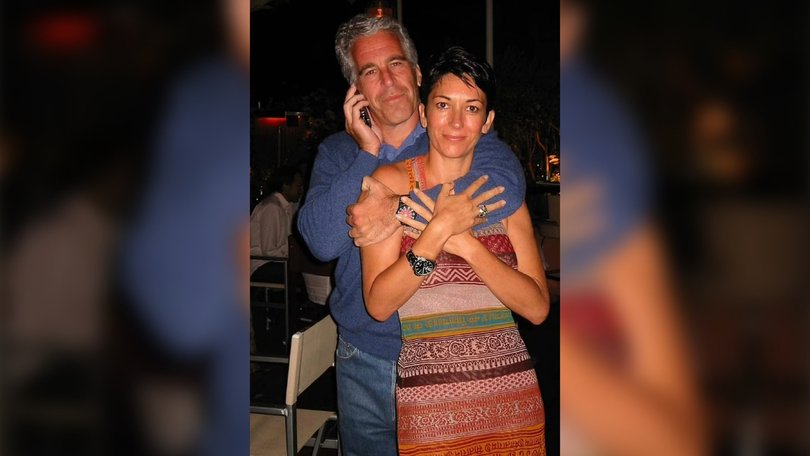Ghislaine Maxwell opposes request to unseal Jeffrey Epstein grand jury papers
NEW YORK TIMES: Ghislaine Maxwell, the longtime companion of Jeffrey Epstein, asked a federal judge to deny the government’s request to unseal grand jury transcripts from its investigation of the two.

Ghislaine Maxwell, the longtime companion of Jeffrey Epstein who is serving a 20-year prison sentence for sexually exploiting and abusing teenage girls, asked a federal judge in New York City on Tuesday to deny the government’s request to unseal grand jury transcripts from its investigation of the two.
“Jeffrey Epstein is dead,” her lawyers wrote.
“Ghislaine Maxwell is not. Whatever interest the public may have in Epstein, that interest cannot justify a broad intrusion into grand jury secrecy in a case where the defendant is alive, her legal options are viable and her due process rights remain.”
Sign up to The Nightly's newsletters.
Get the first look at the digital newspaper, curated daily stories and breaking headlines delivered to your inbox.
By continuing you agree to our Terms and Privacy Policy.The court filing came as two judges are considering requests by the Trump Justice Department to release the grand jury transcripts in the Epstein and Maxwell cases.
The judges had set Tuesday as the deadline for victims of the scheme and Maxwell to offer their views on the proposed disclosure.
The judges set the same deadline for a representative of Epstein to provide an opinion. Epstein was found hanged in his cell in August 2019 as he was awaiting trial; his death was ruled a suicide.
In their letter, Maxwell’s lawyers argue that after Epstein’s death, federal prosecutors “pivoted and made Maxwell the face of his crimes.”
“She became the scapegoat and the only person the government could put on trial,” her lawyers, David O. Markus and Melissa Madrigal, wrote.
The unsealing request came as President Donald Trump has tried to quell criticism and conspiracy theories from many supporters about Epstein and his circle. Some of those theories were put forth by top aides to Mr Trump before they entered government, leading Mr Trump’s followers to assume US files still held secrets about powerful people connected to Epstein’s crimes.
The backlash intensified last month after the Justice Department released a memo in which it said its review of files regarding Epstein had “revealed no incriminating ‘client list’” or evidence that Epstein had blackmailed prominent people.
“We did not uncover evidence that could predicate an investigation,” the department wrote.
The department said in the memo that Epstein had “harmed over 1,000 victims.”
Maxwell was found guilty of sex trafficking and other charges in December 2021 in a federal trial in New York. With her conviction affirmed on appeal, she has asked the Supreme Court to review her case.
Recently, Todd Blanche, the deputy attorney general, interviewed her over two days in Florida, part of the administration’s effort to curtail criticism that the Justice Department is hiding what it knows about Epstein.
Maxwell has since been moved from a prison in Florida to a minimum-security camp in Texas. Markus has declined to comment on the reason for the move.
In Tuesday’s filing, Maxwell’s lawyers said that in rare instances where judges have unsealed grand jury records, the cases are typically of historical interest and the parties and witnesses have died.
In the Maxwell and Epstein cases, the lawyers said, “The government frames this interest as ‘historical,’ yet it is nothing more than widespread and intense public curiosity about an ongoing criminal case.”
In a government filing last week, arguing for unsealing the transcripts, Attorney General Pam Bondi, Blanche and Jay Clayton, the interim U.S. attorney for the Southern District of New York, said “there is abundant public interest in the investigative work conducted by the Department of Justice and the Federal Bureau of Investigation into those crimes.”
The judges considering the requests are Richard M. Berman, who oversaw the case of Epstein; and Paul A. Engelmayer, who is supervising Maxwell’s case. Maxwell’s letter was submitted to Engelmayer.
In its filing last week, the Justice Department said the only witnesses who testified before the Epstein and Maxwell grand juries were members of law enforcement. In Epstein’s case, the sole witness was an FBI agent; in Maxwell’s case, the same agent and a New York City police detective testified.
In a filing Tuesday, the government said much information provided in grand jury testimony surfaced publicly — with the exception of information about the identities of certain victims and witnesses — during Maxwell’s trial or has been publicly reported through statements of victims and witnesses.
Judges rarely agree to release grand jury records. When Bondi and Blanche first requested the unsealing in July, they said they would work with the U.S. Attorney’s Office for the Southern District, which prosecuted Epstein and Maxwell, to make “appropriate redactions” of personal identifying information.
“Transparency in this process will not be at the expense of our obligation under the law to protect victims,” the officials wrote.
The court has said victims who want to offer opinions on the proposed unsealing should submit letters to the US attorney’s office, which would then propose redactions to protect identifying information.
This article originally appeared in The New York Times.
© 2025 The New York Times Company
Originally published on The New York Times
